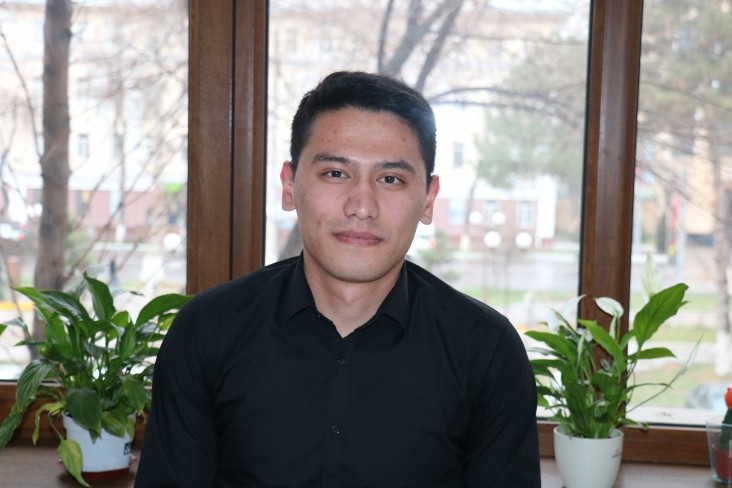Speeches Shim

Empowering Uzbekistan’s Defense Lawyers
Ravshan Nazarov is very close to obtaining his attorney’s license. After receiving his law degree, he has been interning as an attorney’s assistant prior to becoming a full-fledged lawyer, as required by Uzbekistan’s regulations.
“I want to work on criminal cases,” says Ravshan. “Each criminal case is a different story, a different kind of challenge, whether it is fraud, homicide, bribery or something else. A criminal defense attorney may have to research a wide array of topics, from medicine to tax law to economic issues. It takes a lot of expertise and experience to become an effective criminal defense lawyer.”
Ravshan is one of the young lawyers who participated in a USAID-sponsored training on trial skills which he believes will bring him closer to his dream of becoming a criminal defense attorney. When asked about his experience, he states that, as a direct result of USAID’s training, he learned how to effectively prepare and use opening statements as a trial tool.
Opening statements are not widely used by Uzbek lawyers, although they are allowed under Uzbek law. Typically, a trial begins with the prosecutor reading the indictment, while the defense attorney only makes a closing speech at the very end of the trial. As a result, defendants are often at a disadvantage throughout the proceedings.
Ravshan has already made good use of opening statements to the benefit of his clients: “Acquittal is the greatest reward for a defense attorney. Recently we defended a young man accused of fraud. We investigated the matter extensively and found no evidence of wrongdoing. He simply made a miscalculation in a business decision and fell victim to price fluctuations. I prepared most of the case materials, including a strong, well-argued opening statement which contributed to a favorable verdict for our client. His entire family - his wife, one-year old daughter, parents and in-laws - were present when he was acquitted. Their delight and tears of joy made me feel blessed for being a critical part of his defense and making such a difference in their lives.”
Currently Uzbekistan is experiencing a dramatic change and is striving to become a full-fledged member of the international community. For the desired economic and social transformations to succeed, legal and judicial system reforms are imperative, and there is a strong political will in the country to make these changes happen. In that context, USAID is helping Uzbekistan to reform its criminal justice system by departing from the current inquisitorial system – a legacy from Soviet times which produces a very low acquittal rate – to a more adversarial system.
To support these efforts, the USAID Legal Reform Program has set up and equipped mock trial training rooms for the Chamber of Advocates of the Republic of Uzbekistan (the national association of defense lawyers). During training exercises, guided by teacher-attorneys who themselves have been trained through USAID’s program, law students and attorneys have the opportunity to develop essential skills such as public speaking, critical thinking, and the art of forming a cohesive and persuasive argument. They also learn how to identify strengths and weaknesses of a case and how their pleas may resonate with a judge. The mock trial rooms have already been very successful in generating heated debates, deepening students’ understanding and fostering their growth as professional lawyers, and the training exercises have now been included into the Chamber’s standard training curriculum.
The number of acquittals in criminal cases in Uzbekistan has already grown significantly, from just 50 in 2017 to 859 in 2019. A new generation of lawyers, like Ravshan, with new knowledge and skills, and a fresh outlook, is determined to continue to re-balance the scales of justice in favor of the defense, and USAID is playing a critical role supporting them in their journey.

Comment
Make a general inquiry or suggest an improvement.